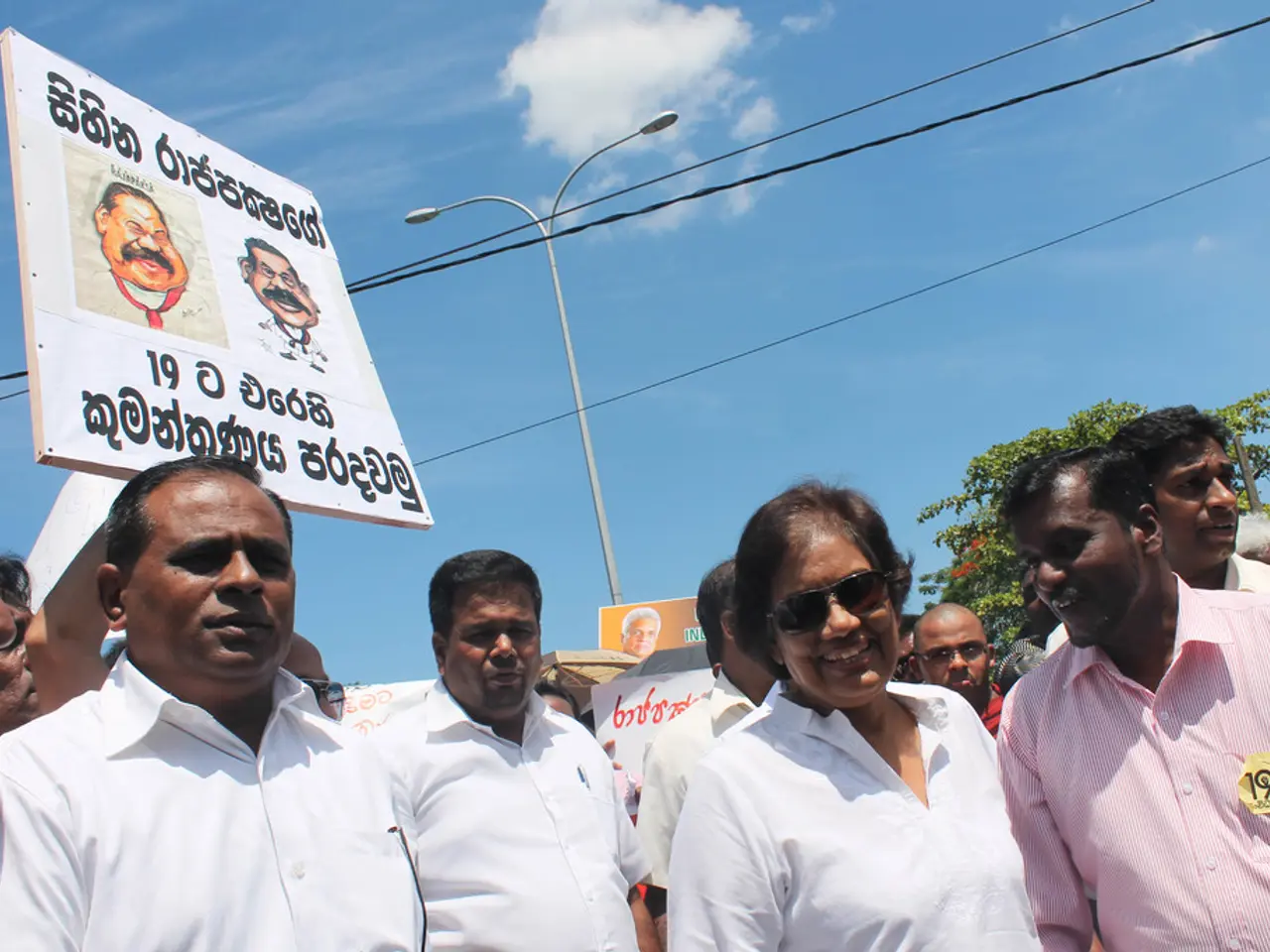Unrest in Poland sparked by display of Haifa supporters' signs
In the heated atmosphere of a UEFA Conference League match, Israeli fans of Maccabi Haifa displayed a banner reading "Murderers since 1939" during their game against the Polish team Rakow Czestochowa. This provocative slogan has sparked a heated debate, rooted in deep historical grievances and differing narratives about Poland's role during World War II.
The banner's historical context lies in the Nazi invasion of Poland on September 1, 1939, which started World War II. Poland, with the largest Jewish population in Europe before the war, was occupied by Nazi Germany. While some historical studies suggest that some Poles were complicit in the killing of Jews, many Poles reject these claims, viewing them as distorted attempts to dishonor Poland’s suffering and sacrifice during the war.
The slogan has been seen as insulting to the memory of Polish citizens who died during World War II, including three million Jews. Poland's Foreign Minister, Radosław Sikorski, and President Karol Nawrocki, have strongly condemned the banner, with Sikorski announcing plans to ban the fans who unfurled it, if Hungary helps identify them.
The Polish Football Association President, Cezary Kulesza, spoke of "provocation and historical distortion" in relation to the banner, particularly scandalous was the attempt to blame Poland for the crimes of Nazi Germany. The Israeli Embassy in Warsaw also condemned the "disgusting behavior of some fans" and stressed that such words and actions have no place in the stadium or elsewhere.
The incident in Debrecen, Hungary, where the match was held due to the Middle East conflict, is linked to a previous incident where Raków fans allegedly unfurled a banner criticizing the actions of the Israeli military in Gaza. The UEFA has opened disciplinary proceedings against both Maccabi Haifa and Raków Częstochowa for inappropriate messages at sporting events.
This dispute between football fans thus reflects broader tensions between Poland and Israel concerning history, memory, and identity related to World War II and the Holocaust. It exposes challenges in reconciling different historical memories and the limits of political expression in sports contexts.
The Israeli Embassy stated that the shameful incidents do not reflect the attitude of the majority of Israeli fans. The debate underscores the unresolved disputes over historical interpretation of World War II, intertwining national pride, collective memory, and the painful legacy of the Holocaust, now played out symbolically and publicly in the arena of international football.
- The controversy surrounding the banner displayed by Maccabi Haifa fans in a UEFA Conference League match against Rakow Czestochowa has raised questions about sports, politics, and policy-and-legislation, as it highlights the ongoing disputes between Poland and Israel about World War II and the Holocaust.
- The banner, which read "Murderers since 1939," has sparked a heated debate, with some interpreting it as an accusation against Poland for its role during World War II, while others see it as a response to historical grievances.
- Despite the Israeli Embassy's declaration that the banner does not reflect the views of the majority of Israeli fans, the incident has put the European leagues and UEFA in a position to address the issue of inappropriate messages at sporting events, such as the Champions League.
- The debate surrounding the banner and the reaction from both Polish and Israeli officials shows that the arena of international football can serve as a stage for resolving unresolved disputes over historical interpretation and the limits of political expression, emphasizing the intertwined nature of general news, sports, politics, and policy-and-legislation.





